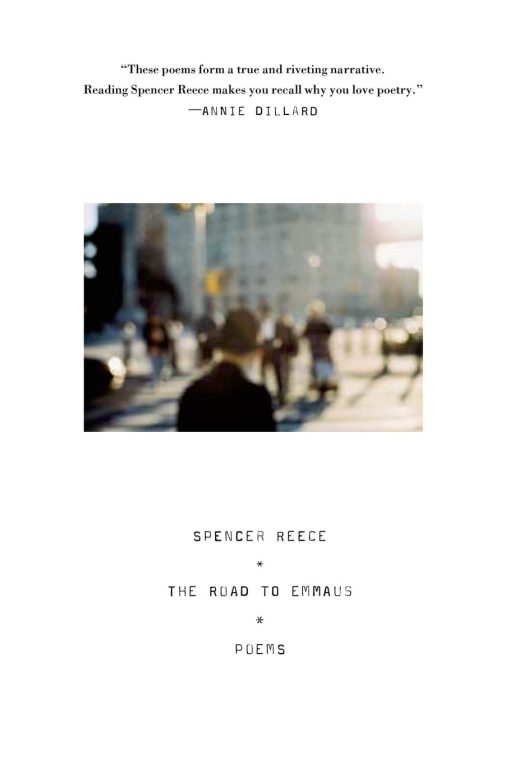
Spencer Reece is a poet and priest. His first collection, The Clerk’s Tale, won the Bakeless Prize in 2003. He has received an NEA grant, a Guggenheim grant, a Witter Bynner Prize from the Library Congress, a Whiting Writers’ Award, and the Amy Lowell Travelling Scholarship. His poems have been published in The New Yorker, Poetry, The American Scholar, and The New Republic. He served at the Honduran orphanage Our Little Roses, and works for the Bishop of Spain for the Reformed Episcopal Church, Iglesia Española Reformada Episcopal.

Judges’ Citation
This is an open book, a welcoming one like a voice on the phone we instantly remember.
Selected poems
by Spencer Reece
How long do we wait for love?
Long ago, we rowed on a pond.
Our oars left the moon broken—
our gestures ruining the surface.
Our parents wanted us to marry.
Beyond the roses where we lay,
men who loved men grew wounds.
When do we start to forget our age?
Your husband and I look the same.
All day, your mother confuses us
as her dementia grows stronger.
Your boys yell: Red Rover!
We whisper your sister’s name
like librarians; at last on the list,
her heart clapping in her rib cage,
having stopped now six times,
the pumps opened by balloons,
we await her new heart cut
out from the chest of a stranger.
Your old house settles in its bones,
pleased by how we are arranged.
Our shadow grows like an obituary.
One of us says: “It is getting so dark.”
Your children end their game.
Trees stiffen into scrapbooks.
The sky’s shelves fill with stars.
Copyright © Spencer Reece 2014
1 Corinthians 13
The bishop places a paperweight atop my reports on his desk,
our professional talk is measured by the silence of the dead
who are always flinging open their shutters,
religion being the work of the living and the dead,
the hope and release of children turning to their parents –
all that business in life that remains unrehearsed.
Copyright © Spencer Reece 2014
from The Prodigal Son
Waiting with an unfinished, finished look
behind honeysuckles that crown Old Saybrook,
she is reading Vita Sackville-West,
he has food on his moth-eaten sweater vest.
Here’s the Oriental rug, still steeped in piss
from their bulldog who barked like an activist.
She seems happy, reigning with creams you FedExed,
rubbing his scalp, patched with scabby flecks
(as his squamous-cell carcinomas sprout,
the local dermatologist cuts them out
or frosts the growths with liquid nitrogen).
Tonight they talk of their last vegetable garden,
count out their pills in chipped cereal bowls
(you know the ones), check their sugar levels,
bicker over books misplaced, tchotchkes
lost, their tongues like well-used church keys.
Brother, last night half the garden nearly froze.
The dash between their dates is nearly closed.
Copyright © Spencer Reece 2014
The Fifth Commandment
By Roberto Sosa, a translation
The poor are many
and so —
impossible to forget.
No doubt,
as day breaks,
they see the buildings
where they wish
they could live with their children.
They
can steady the coffin
of a constellation on their shoulders.
They can wreck
the air like furious birds,
blocking the sun.
But not knowing these gifts,
they enter and exit through mirrors of blood,
walking and dying slowly.
And so,
one cannot forget them.
Copyright © Spencer Reece 2014